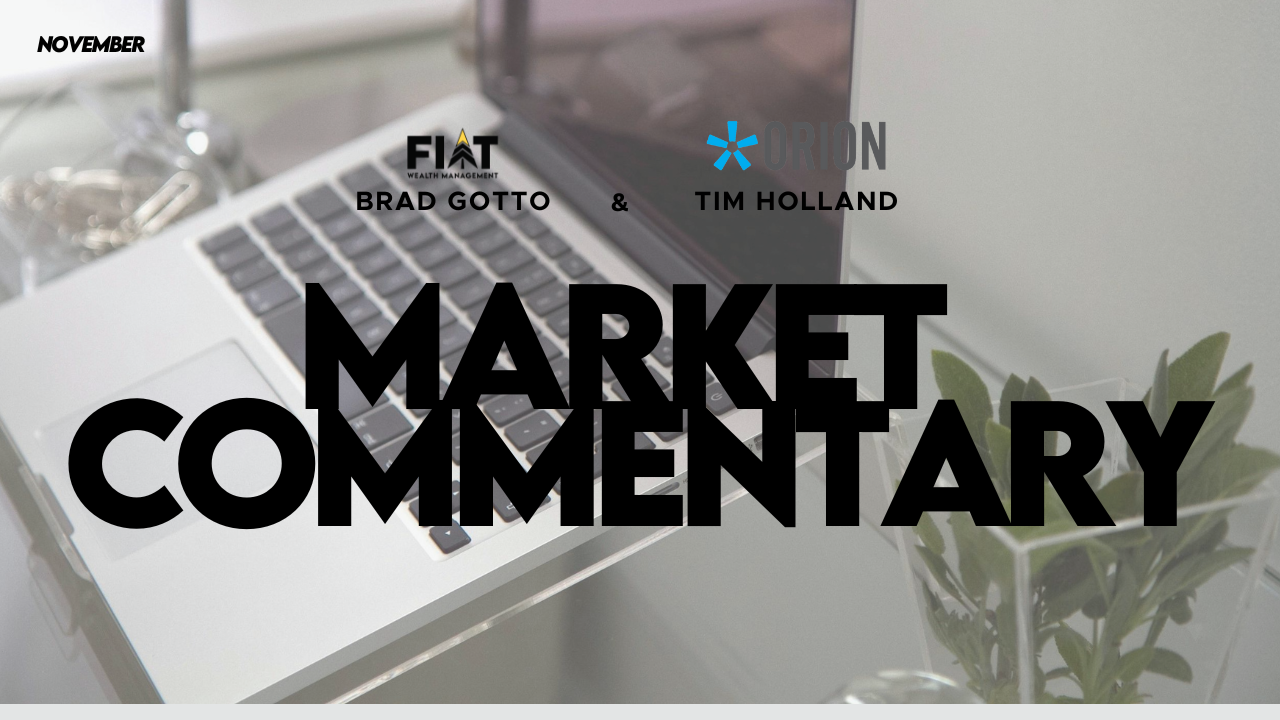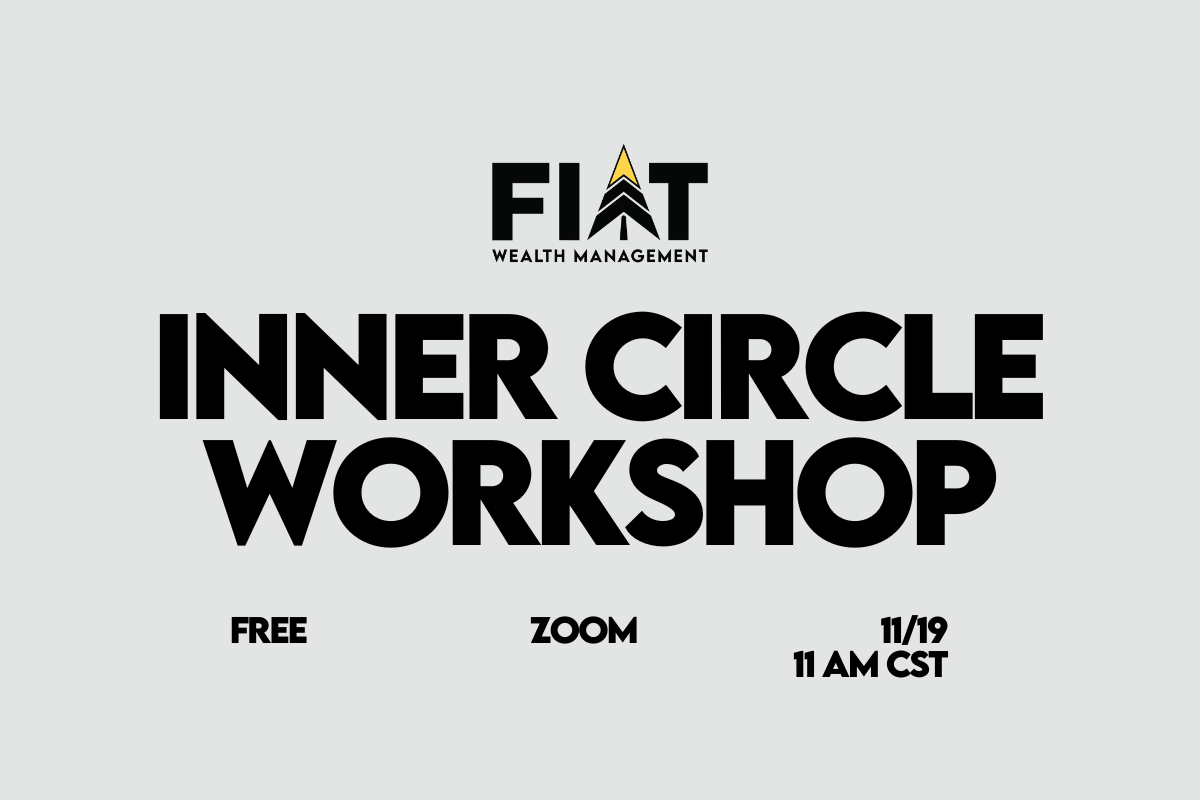Tax season is upon us, and this is the perfect opportunity to make sure you’ve maximized your tax return. Did you know that there are some simple things you can do this season to get the most out of your tax return?
At Fiat, we believe that every investment decision is a tax decision, and vice versa, so this blog post will explore a few easy ways to manage your taxable income for a healthy tax return while keeping a keen eye on our overall financial plan (sometimes paying less in taxes this year may not be what we are aiming for - see more below).
Here are just a few of the things this blog post will explore:
1. How to calculate your taxable income
2. Strategies to lower your taxable income
3. Consider what deductions might be available to you
4. Explore lowering your taxable income
5. Find out how your invested assets are taxed
Calculating Your Taxable Income
When it comes to calculating your taxable income, you may think that it’s as simple as adding up how much you make in a year. This is not the case, however. Your taxable income equals your Adjusted Gross Income (AGI) less any exemptions and deductions.

Your gross income is the sum of money you have earned from all sources of income (wages, salary, taxable interest and dividends, capital gains, etc).
Adjustments, or “above the line deductions,” include contributions to certain health and retirement savings accounts or student loan interest, among others. Once accounted for, you are left with your Adjusted Gross Income (AGI).
From your AGI you can either subtract itemized deductions (state and local taxes, real estate taxes, mortgage interest, etc) or take the standard deduction, which depends on your filing status.
After subtracting deductions, you are left with your taxable income. From your taxable income, you then subtract your capital gains and qualified interest and dividends, and you are left with your ordinary income. Your ordinary income will then determine your marginal tax rate.

There are tax strategies that can help you lower your taxable income and, as a result, your marginal tax rate. If you’re looking to reduce your taxable income, here are a few things to consider:
Strategies to Lower Your Ordinary Income
There are tax strategies that can help you lower your taxable income and, as a result, your marginal tax rate. If you’re looking to reduce your taxable income, here are a few things to consider:
- Higher contributions to tax-deferred retirement savings accounts (being mindful of income-based phase-outs).
- Higher contributions to certain tax-preferred childcare and healthcare savings plans.
- Increasing your charitable giving (see this post by my colleague, Scott Airey: “Maximizing Your Charitable Giving in 2020”)
- Taking advantage of tax-free income sources, such as municipal bonds.
- Deferring income where possible (e.g., waiting to receive year-end bonuses until January 2021).
- Tax-loss harvesting: do you have any losing positions in your non-qualified account? Now may be the time to sell them and realize the loss on purpose.
However, if you know anything about us at Fiat, it is that we look at the totality of your financial plan when making these types of decisions. Sometimes it makes sense to increase your tax bill now if doing so can reduce your taxes in the future. When using strategies such as contributing to tax-deferred accounts, remember that you are not avoiding taxes, you are simply delaying them. It is important to not just look at your current tax bill, but how you are affecting future tax bills.

How Are My Invested Assets Taxed?
Now that we’ve talked about taxable income and how to lower it, let’s take a look at how different investment assets are taxed. The tax treatment of an asset is important to understand, as it can impact your decision on where to invest your money.
Please refer to our podcast, our TV show, and previous blog posts regarding this topic, as we go into much more depth. In summary, we see your invested assets through the lens the IRS uses:
- Traditional or qualified pre-tax retirement accounts: contributions to these accounts reduct your taxable income the year you make the contribution. Distributions are taxed as ordinary income (typically in retirement).
- Tax-free accounts: Tax-free retirement accounts (Roth): contributions are made with after-tax dollars and then principal and earnings are never taxed again - Non-retirement tax-free accounts: certain Healthcare Savings Accounts (HSAs) and childcare savings accounts are funded with pre-tax dollars and never taxed if distributions are made within certain parameters. This is truly tax-free money!
- After-tax or non-qualified accounts: these accounts are funded with after-tax dollars. They have a preferential tax treatment because earnings and interest are taxed at your capital gains rate rather than your marginal ordinary-income rate.
Conclusion
As mentioned at the beginning of this blog post, at Fiat Wealth Management we see every investment decision as a tax decision, and vice versa. We find that looking at just this year’s tax bill is a short-sighted stance if we are not considering what future implications our current decisions have. As mentioned before, sometimes paying more taxes now can reduce taxation in the future. Other times, we may seek to reduce the taxes paid in a year.
What is certain is that taxes are inevitable. What doesn’t have to be a certainty is the control you exert over taxes in your financial plan. Once you begin to look at your assets through the lens of the IRS and you understand how your different sources of income are taxed, you can begin to formulate a plan to maximize your success today without hindering tomorrow.
Investment advisory services offered through Foundations Investment Advisors, LLC, an SEC registered investment adviser.













.png)